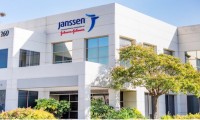-
Chasing AstraZeneca and Pfizer, Johnson & Johnson snags FDA nod for prostate cancer combo Akeega
- Source: drugdu
- 118
- August 16, 2023
-
FDA Approves J&J’s Akeega for BRCA-Positive Prostate Cancer
- Source: drugdu
- 187
- August 16, 2023
-
Alkermes, Nearing Oncology Split, Posts Big Q2 Sales Gain After Winning J&J Arbitration Case
- Source: drugdu
- 114
- July 28, 2023
-
J&J’s Darzalex Stays on its Upward Trajectory as Company Adds $1B to Annual Sales Projection
- Source: drugdu
- 115
- July 24, 2023
-
Johnson & Johnson Becomes 4th Drugmaker to File Suit Against IRA’s Drug Price Negotiations
- Source: drugdu
- 279
- July 20, 2023
-
Neumora Races Toward Phase III with New Driver in the Hot Seat
- Source: drugdu
- 112
- July 20, 2023
-
FDA rejects Alvotech’s Humira biosimilar for the third time
- Source: drugdu
- 108
- July 1, 2023
-
States Back FTC in Lawsuit Seeking to Block Amgen-Horizon Deal
- Source: drugdu
- 117
- June 25, 2023
-
Empress Therapeutics emerges with $50m to fund small molecule development
- Source: drugdu
- 121
- June 23, 2023
-
AbbVie Files Patent Infringement Lawsuit Against BeiGene’s Brukinsa
- Source: drugdu
- 112
- June 17, 2023
your submission has already been received.
OK
Subscribe
Please enter a valid Email address!
Submit
The most relevant industry news & insight will be sent to you every two weeks.













